PM 100: Principles of Project Management PM 200: Organizational
advertisement
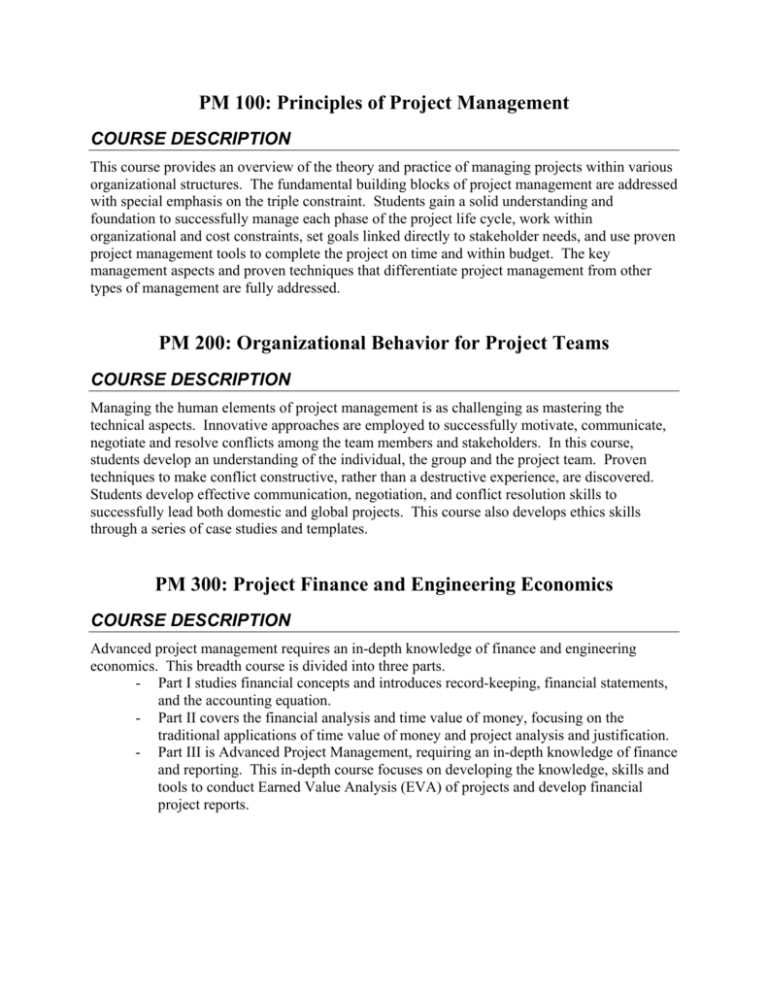
PM 100: Principles of Project Management COURSE DESCRIPTION This course provides an overview of the theory and practice of managing projects within various organizational structures. The fundamental building blocks of project management are addressed with special emphasis on the triple constraint. Students gain a solid understanding and foundation to successfully manage each phase of the project life cycle, work within organizational and cost constraints, set goals linked directly to stakeholder needs, and use proven project management tools to complete the project on time and within budget. The key management aspects and proven techniques that differentiate project management from other types of management are fully addressed. PM 200: Organizational Behavior for Project Teams COURSE DESCRIPTION Managing the human elements of project management is as challenging as mastering the technical aspects. Innovative approaches are employed to successfully motivate, communicate, negotiate and resolve conflicts among the team members and stakeholders. In this course, students develop an understanding of the individual, the group and the project team. Proven techniques to make conflict constructive, rather than a destructive experience, are discovered. Students develop effective communication, negotiation, and conflict resolution skills to successfully lead both domestic and global projects. This course also develops ethics skills through a series of case studies and templates. PM 300: Project Finance and Engineering Economics COURSE DESCRIPTION Advanced project management requires an in-depth knowledge of finance and engineering economics. This breadth course is divided into three parts. - Part I studies financial concepts and introduces record-keeping, financial statements, and the accounting equation. - Part II covers the financial analysis and time value of money, focusing on the traditional applications of time value of money and project analysis and justification. - Part III is Advanced Project Management, requiring an in-depth knowledge of finance and reporting. This in-depth course focuses on developing the knowledge, skills and tools to conduct Earned Value Analysis (EVA) of projects and develop financial project reports. PM 400: Project Quality, Risk and Procurement Management COURSE DESCRIPTION Quality Management ensures that project deliverables meet predetermined criteria. Methods for quality management are studied including quality planning, assurance and control. Risk management is the systematic process of identifying, analyzing, evaluating, and controlling project risks. Both qualitative and quantitative risk analyses are conducted and strategies for proactive risk aversion and reactive risk response are developed. Procurement Management is the acquisition of direct scope and auxiliary services from outside the business unit or organization. Methods for procurement management are studied including planning, solicitation, selection and contract administration. PM 500: PMP Exam Preparation COURSE DESCRIPTION This course provides a comprehensive review of all nine project management knowledge areas and five project processes with a special emphasis in the preparation to take and pass the PMP exam offered by PMI. It is taught by a PMP-certified Instructor who provides essential tips on successful test-taking strategies. The seminar includes reviewing all aspects of the PMBOK (Project Management Body of Knowledge) covered in the preceding courses. The review includes management of the following key PM areas: integration, scope, time, cost, quality, human resources, communication, risk and procurement. It also includes review of the five project processes.

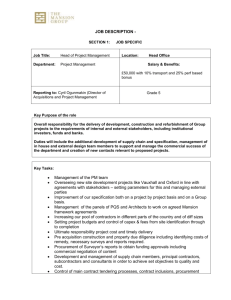
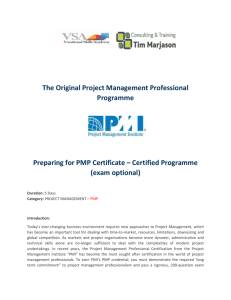





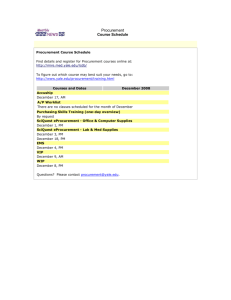




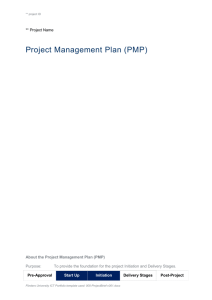
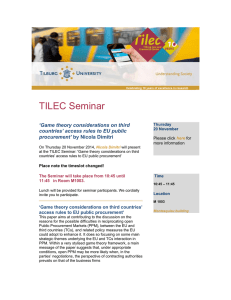
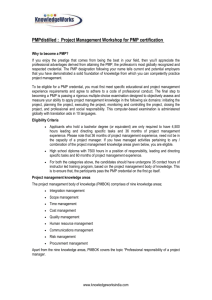
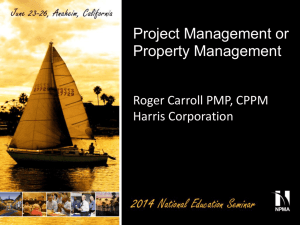
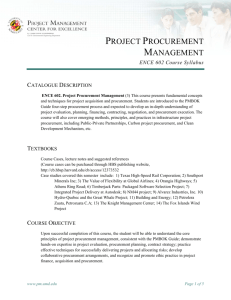
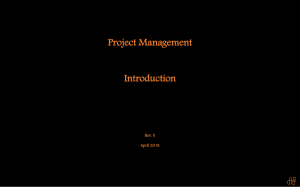
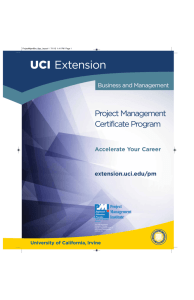
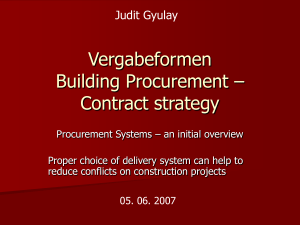
![17871Cert+PM-OnlineDeliverySchedule+Sem+2+2010[1]](http://s3.studylib.net/store/data/008570291_1-5feed9c653ab4a8b6fcf90f5565d4469-300x300.png)